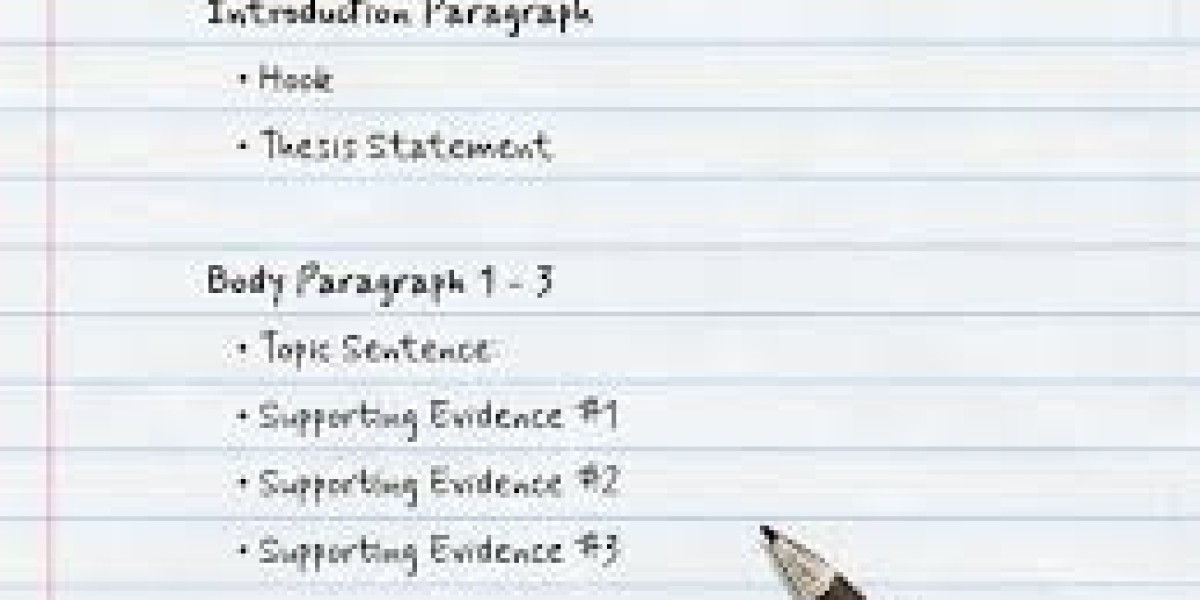Writing essays is a common task in school and college, and while it's an essential skill, many students struggle with common mistakes. These mistakes can affect the quality of your essay, making it harder for you to communicate your ideas clearly and persuasively. Whether you’re writing an argumentative, descriptive, or expository essay, avoiding these common errors can help elevate your writing and improve your overall performance.
In this article, we’ll cover 7 common essay mistakes and how you can avoid them to write better essays every time.
1. Lack of a Clear Thesis Statement
A thesis statement is the backbone of your essay. It expresses the main argument or point of view you're making in your paper. Without a clear thesis, your essay can lack focus and direction, leaving your reader confused about what you’re trying to say.
How to avoid it:
- Develop a clear thesis: Before you start writing, take time to develop a thesis statement that clearly states the main point of your essay. Ensure that it answers the question or addresses the topic effectively.
- Stay focused on your thesis: As you write, constantly refer back to your thesis statement to ensure all your arguments and points are relevant and connected to it.
Example:
- Weak Thesis: “There are many factors affecting climate change.”
- Stronger Thesis: “Human activities, such as deforestation and burning fossil fuels, are the primary drivers of climate change.”
2. Poor Structure and Organization
Essay structure is essential for presenting ideas in a logical and coherent way. A disorganized essay can confuse your reader and make it harder to follow your argument. Each part of the essay should be connected and flow naturally to the next.
How to avoid it:
- Use an outline: Plan your essay before you start writing by creating an outline. This helps you organize your main points and ensures your essay has a clear introduction, body paragraphs, and conclusion.
- Paragraph structure: Each body paragraph should start with a topic sentence that introduces the main point, followed by supporting details and examples.
Example:
- Disorganized Essay: Jumping back and forth between ideas without clear transitions.
- Well-Structured Essay: Clearly defined sections with topic sentences, logical flow, and smooth transitions between paragraphs.
3. Failing to Answer the Question or Address the Topic
One of the most common mistakes is failing to directly address the essay prompt or question. Many students write essays that veer off-topic or discuss irrelevant ideas, which can hurt your grade.
How to avoid it:
- Read the prompt carefully: Before starting your essay, make sure you fully understand the question. Highlight keywords and make sure you’re addressing every part of the prompt.
- Stay on topic: As you write, constantly ask yourself whether each sentence or paragraph supports the thesis and answers the question. If it doesn’t, revise or remove it.
Example:
- Not Answering the Prompt: Writing about general environmental issues when the essay asks you to focus on the effects of deforestation.
- Answering the Prompt: Focusing specifically on how deforestation contributes to climate change and how it affects ecosystems.
4. Weak or Inadequate Evidence
An essay without strong supporting evidence is less persuasive and less convincing. Using generalizations or making unsupported claims weakens your argument and leaves your reader unconvinced.
How to avoid it:
- Use credible sources: Support your arguments with facts, statistics, expert opinions, and examples from credible sources.
- Provide analysis: Simply quoting or referencing a source isn’t enough. Be sure to analyze the evidence and explain how it supports your argument.
Example:
- Weak Evidence: “Climate change is bad for the environment. Many people say so.”
- Stronger Evidence: “According to the National Oceanic and Atmospheric Administration (NOAA), global temperatures have risen by 1.2 degrees Celsius since the late 19th century, leading to more extreme weather events.”
5. Repetition and Wordiness
Using the same words or phrases over and over again, or writing overly long and complicated sentences, can make your essay seem repetitive and hard to read. It can also make your ideas appear weak or unrefined.
How to avoid it:
- Be concise: Aim to communicate your ideas clearly without unnecessary repetition. Avoid using too many filler words or overly complex phrases.
- Vary sentence structure: Mix short, clear sentences with longer, more complex ones to improve the flow of your writing.
Example:
- Repetitive: “The climate is changing. The weather is getting worse. The climate crisis is real.”
- Concise: “The climate crisis is real, and extreme weather events are becoming more frequent as temperatures rise.”
6. Spelling, Grammar, and Punctuation Errors
Small mistakes like incorrect spelling, poor grammar, or missing punctuation can make your essay look unprofessional and distract the reader from your argument. These errors can also make it seem like you haven’t put enough effort into your writing.
How to avoid it:
- Proofread your work: Always read through your essay before submitting it. Look for spelling mistakes, incorrect grammar, and missing punctuation.
- Use grammar check tools: Tools like Grammarly can help catch some of these mistakes, but don’t rely solely on them. Always manually proofread.
- Seek feedback: If possible, ask a friend, teacher, or peer to read your essay. They may spot errors you missed.
Example:
- Grammatical Mistakes: “Their is no evidence that supports this claim.”
- Corrected Version: “There is no evidence that supports this claim.”
7. Weak Conclusion
Your conclusion is your final chance to leave a lasting impression on the reader, so it should not simply restate your thesis or summarize the essay. A weak conclusion fails to reinforce your argument or offer any insights.
How to avoid it:
- Summarize key points: Briefly restate the main ideas or arguments you’ve made in the body paragraphs.
- Provide a closing thought: Instead of merely summarizing, offer a broader perspective, solution, or call to action that relates to your argument.
Example:
- Weak Conclusion: “In conclusion, social media has many effects.”
- Stronger Conclusion: “In conclusion, while social media offers numerous benefits, it also poses serious risks to mental health. Therefore, it’s essential for both individuals and society to take steps to mitigate these risks and promote healthy online habits.”
Final Thoughts
By avoiding these common essay mistakes, you can write clearer, more focused, and more persuasive essays. A strong thesis, good structure, solid evidence, and careful proofreading are all essential to writing a successful essay. Take the time to understand your topic, stay on track, and refine your writing through revision. With these strategies in mind, you’ll be well on your way to improving your essay writing skills.









